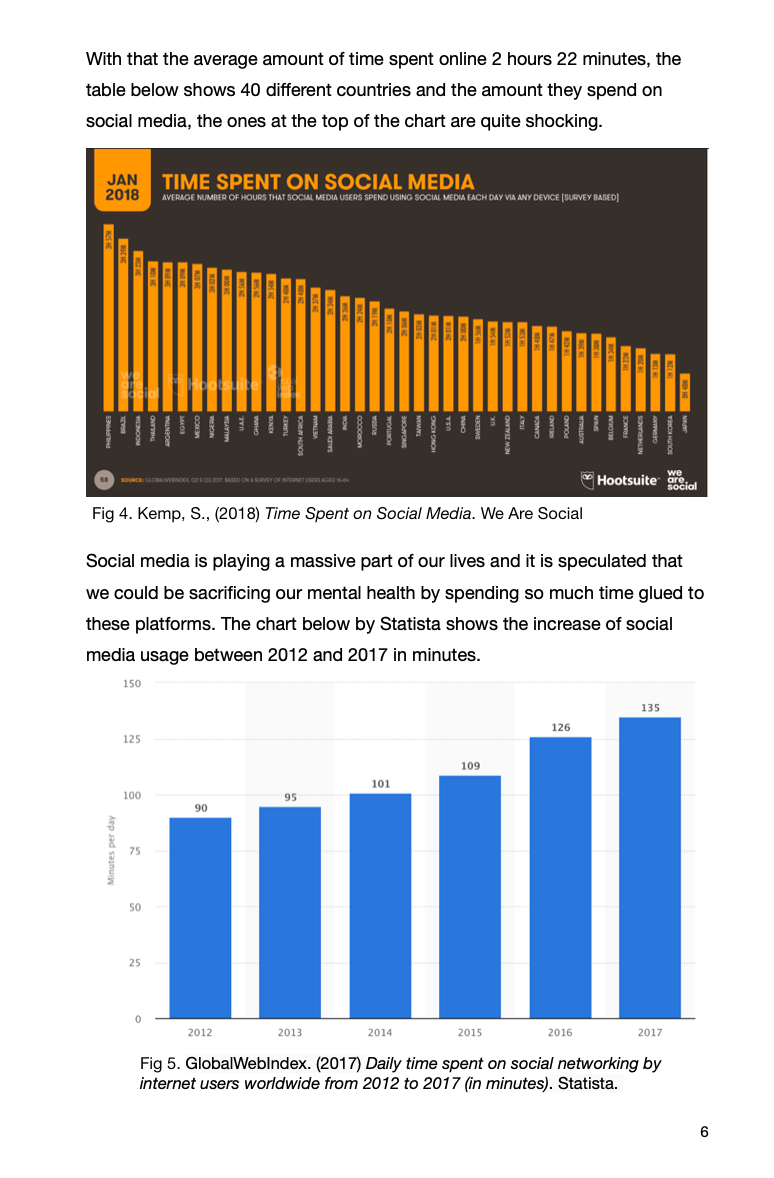Rough Essay Planning
- hannahcranshaw
- Feb 28, 2019
- 2 min read
Updated: Apr 1, 2019
Structure
intro - 300 words
part 1 - 700-1200
part 2 - 700-1200
Conclusion 300 words

being obsessed with online - too much pressure - feeling the need to always look good
https://www.nytimes.com/2015/05/31/opinion/sunday/jennifer-weiner-the-pressure-to-look-good.html
https://blog.gfk.com/2016/01/what-makes-us-want-to-look-good/ - (over 15s)
http://time.com/4793331/instagram-social-media-mental-health/
"But Instagram has always been about looking flawless. What has changed to spark such a backlash? Among users I spoke to, one event was cited time and again: the introduction, in mid-2016, of Instagram’s algorithmic timeline. It was one of the largest changes to the platform since it was bought by Facebook in 2012. Rather than presenting users with a cross-section of what the people they were following were up to at any given moment, Instagram began populating feeds with the most noteworthy posts from those accounts, often reaching back days or even weeks to pull in particularly compelling content. In effect, the service began promoting a curated, unrealistic version of an already curated, unrealistic feed." https://www.theguardian.com/technology/2018/sep/17/instagram-is-supposed-to-be-friendly-so-why-is-it-making-people-so-miserable
Unscrupulous creators started buying followers, likes and comments in an attempt to fool the algorithm; as Instagram clamped down on that, Hui says, those users formed secret “comment pods” conspiring to share “each and every post with each other in order to generate ‘authentic’ and immediate engagement”.
While influencers such as Dixon often get the lion’s share of the blame for the epidemic of unreality on Instagram, it’s just as prevalent at the grassroots as it is among the “Insta-celebrities”.
https://www.letstalkcampaign.com/#block-yui_3_17_2_1_1538047912190_4102 - Charlie Clift https://www.theguardian.com/society/2018/sep/30/brave-words-a-photographic-project-is-helping-people-with-mental-health-issues-express-how-they-truly-feel
https://www.acitymadebypeople.com/journal/made-by-people-lab-photography-mental-health-exhibition-amsterdam - photography x metal health
wendy ewald
http://www.bbc.com/future/story/20180104-is-social-media-bad-for-you-the-evidence-and-the-unknowns
https://www.complex.com/life/2017/05/study-reveals-which-social-media-network-most-damaging-your-mental-well-being
metal health - depression rates rising - -
Feedback
You have identified a clear area of interest for this investigation which is good to see. However, you have not articulated how this is related to, or can inform your practice. You do need to clarify this so that you can keep the study focused to the most relevant information. The topics of mental health/anxiety are vast and you do need to narrow down your working title to reflect which specific aspect you will be investigating. In your tutorial last week, you mentioned that you were interested in the study that said many young people were moving away from social media. Perhaps that’s where you want to focus? What is your Manifesto project examining? If for example you are documenting the people that have done just that then you can establish clearer links to that and your theoretical research. Perhaps you should start to write a draft of your essay this week and then we can discuss the direction it is starting to take at a tutorial next week? Also revisit the guide on Harvard referencing on the Google Classroom/Library page to address issues currently in your bibliography.
Add in specific mental health into the question then mention escapism in the introduction?


Comentarios